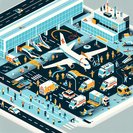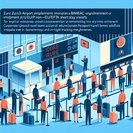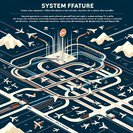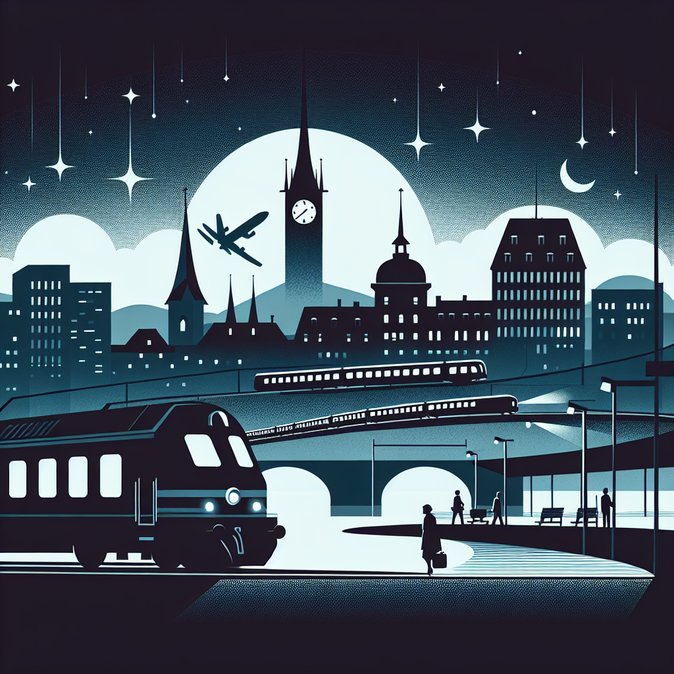
Swiss Federal Railways (SBB) has confirmed that its experimental night service linking Bern, Zurich Airport and Winterthur will continue every Friday and Saturday throughout 2026 after a six-month pilot drew solid passenger loads and strong corporate feedback. The train—which departs Winterthur at 01:40 for Bern and returns at 03:00, with a stop at Zurich Airport at 04:16—caters to leisure travellers, shift workers and flyers catching early-morning long-haul departures.
Trial results: According to SBB, average occupancy on the spring–autumn test runs reached 62 percent, well above the 40 percent break-even threshold for night operations. Importantly for the airport hub, more than one-third of riders were airline crew or travellers with 06:00–08:00 departures who would otherwise rely on costly taxis or overnight hotel stays. Business groups in the pharma, finance and events sectors told SBB the train shaved 20–35 percent off door-to-door costs for early flights.
![SBB to Extend Late-Night Bern-Zurich-Winterthur Train Service Through 2026 After Successful Trial]()
Operational tweaks for 2026: • Additional luggage racks and plug-points will be installed to reflect the high share of air travellers. • A quiet-car concept will be trialled to protect commuters needing sleep. • Real-time security monitoring will be expanded after a handful of minor vandalism incidents during the pilot.
Mobility and sustainability angle: Extending the night train aligns with the Federal Council’s goal of shifting 2 percent of short-distance trips from roads to rail by 2030. Zurich Airport has agreed to co-fund marketing, highlighting the service as a low-carbon first/last-mile solution for flights.
Impact for global mobility managers: Assignees based in central Switzerland can now schedule Monday-morning overseas departures without paying Sunday hotel nights. Travel policies should be updated to allow rail reimbursement for airport access, and relocation teams can spotlight late-night public transport as a lifestyle benefit when recruiting talent.
Trial results: According to SBB, average occupancy on the spring–autumn test runs reached 62 percent, well above the 40 percent break-even threshold for night operations. Importantly for the airport hub, more than one-third of riders were airline crew or travellers with 06:00–08:00 departures who would otherwise rely on costly taxis or overnight hotel stays. Business groups in the pharma, finance and events sectors told SBB the train shaved 20–35 percent off door-to-door costs for early flights.
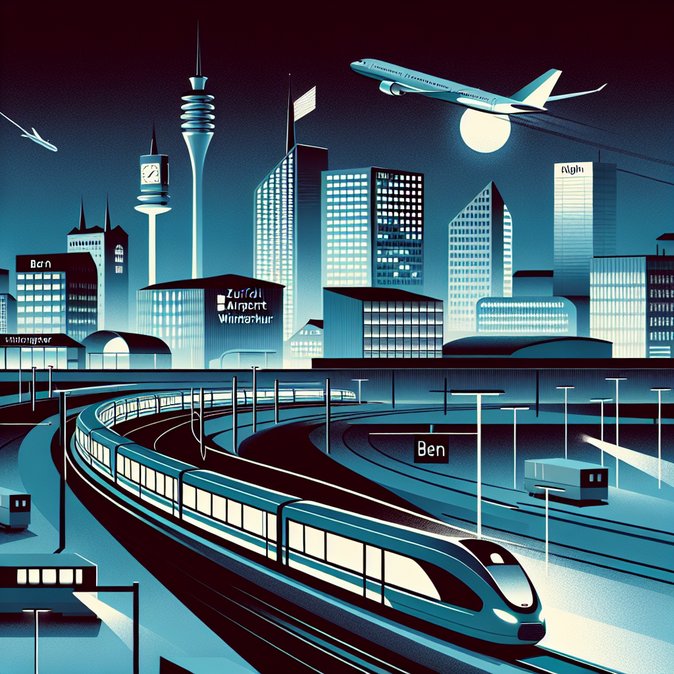
Operational tweaks for 2026: • Additional luggage racks and plug-points will be installed to reflect the high share of air travellers. • A quiet-car concept will be trialled to protect commuters needing sleep. • Real-time security monitoring will be expanded after a handful of minor vandalism incidents during the pilot.
Mobility and sustainability angle: Extending the night train aligns with the Federal Council’s goal of shifting 2 percent of short-distance trips from roads to rail by 2030. Zurich Airport has agreed to co-fund marketing, highlighting the service as a low-carbon first/last-mile solution for flights.
Impact for global mobility managers: Assignees based in central Switzerland can now schedule Monday-morning overseas departures without paying Sunday hotel nights. Travel policies should be updated to allow rail reimbursement for airport access, and relocation teams can spotlight late-night public transport as a lifestyle benefit when recruiting talent.

